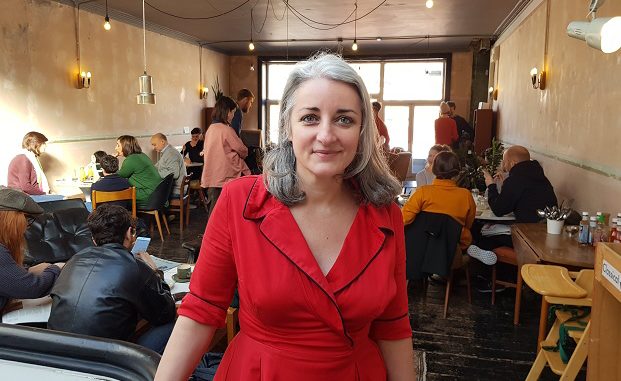
Earlier this week, the people of Thanet heard the devastating news that QEQM hasn’t made it onto the list of three hospitals earmarked for a new hyper-acute stroke unit.
If this decision is allowed to stand, our stroke unit will be closed and those of us suffering a stroke will have to make the long journey to Ashford. I believe many of us may die or be disabled as a result.
As part of Save Our NHS in Kent, the group that’s been campaigning to have QEQM considered as an option, I’m absolutely furious.
Thousands of people in Thanet signed our petition to keep stroke services at QEQM. Thousands of people have been ignored.
QEQM has a good record of treating stroke sufferers. It serves people all along the coast and those living inland. This part of Kent, with a fast-growing elderly population and a large amount of poverty, has more incidents of stroke than wealthier parts of the county, according to a map produced by Kent’s Public Health Observatory. This map darkens in areas where the most strokes happen, revealing a shadowy turquoise coastal trail.
When the Government decided in 2012 that responsibility for health services should be devolved to local commissioners, it passed on a duty to ‘reduce inequalities between patients with respect to their ability to access health services’.
Surely, then, QEQM should at least have been on the list of possible hospitals in Kent to have one of the new state-of-the-art stroke units?
The clinical commissioners certainly seem to be doing their damnedest to get everything tied up at top speed, even before the final decision is taken, which they say won’t be until December or January. I understand that stroke staff at QEQM were offered incentives to move to Ashford weeks before the William Harvey Hospital was named as part of the preferred option.
Significantly, the stroke consultant who’s been leading the charge to reduce our six stroke units to three is based at William Harvey Hospital – the only hospital to appear in each of the five options.
The argument has been used that better treatment justifies distanced travelled, but the evidence simply doesn’t stack up that this is true outside high-density urban areas.
The people making the decision admit that 2% of people in the county will be worse off under these proposals. 2.1% of people in Thanet suffered a stroke or similar loss of blood to the brain over the last few years. You do the maths.
Thanet is the poorest part of Kent. The decisions about what happens to us appear to have been made in the richest parts of Kent. At a recent meeting of the Joint Health Overview and Scrutiny Committee – which scrutinises health proposals and is largely made up of Conservative county councillors from Kent and Medway – not one councillor from Thanet was present.
Thanet’s two Conservative MPs have swung this way and that on the unit.
North Thanet’s MP, Sir Roger Gale, currently supports the decision to shut down the stroke unit at QEQM while South Thanet’s MP, Craig Mackinlay, has flatly refused to defend our threatened stroke unit in Parliament because he perceives it as a fight he can’t win.
I worry that if we tolerate this, then our A&E will be next. More staff will leave, more equipment will go. We will find ourselves having to take longer and longer journeys for the sake of our health, and our loved ones will have to spend more time and money to visit us.
This is not, of course, what health bosses will tell you. They’ll give you a load of jargon about taking away this healthcare.
But don’t despair – there’s still everything to play for and a way to play for it.
Wealthy Kent might have more money than Thanet, but Thanet has more people. Let’s use people power to overturn this decision before it’s set in stone.
Sign the petition calling on East Kent’s health boss to think again, and join us to raise your voice in protest outside QEQM hospital at 12 noon on Saturday 6 October.
And finally, at election time, remember that Labour councillors will fight for our health services and a Labour Government will restore decisions for the NHS to the Department of Health, which will avoid vested interests determining the future of our health.

